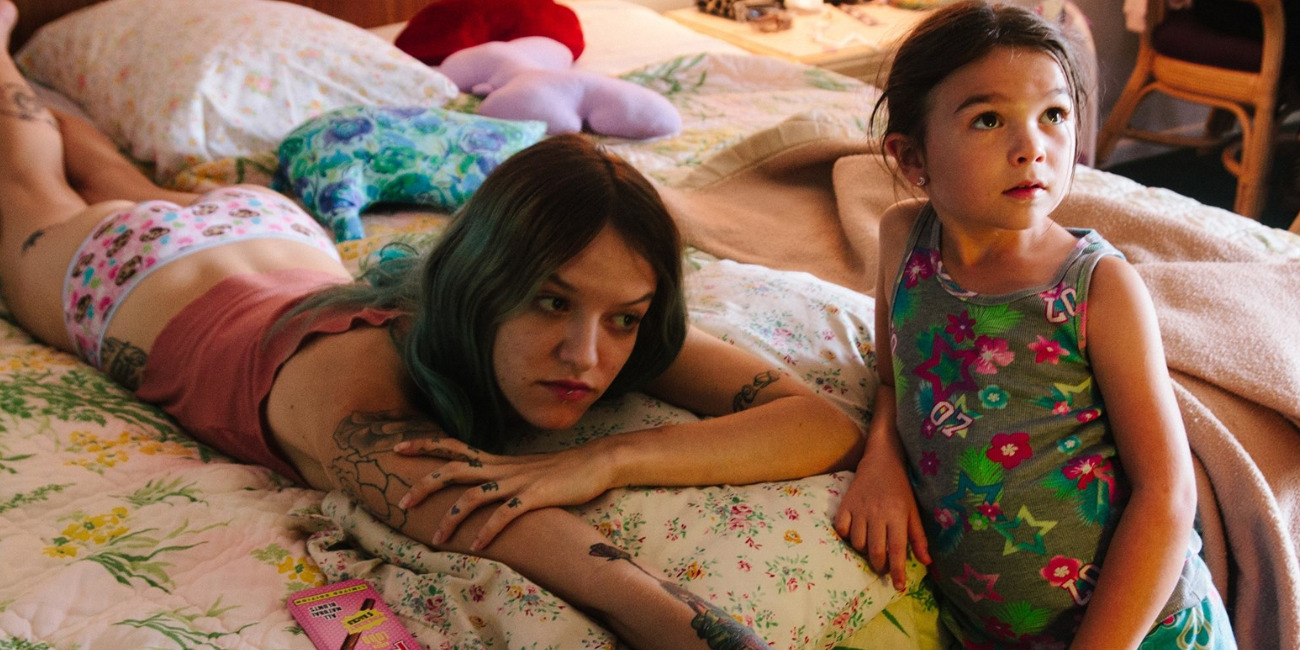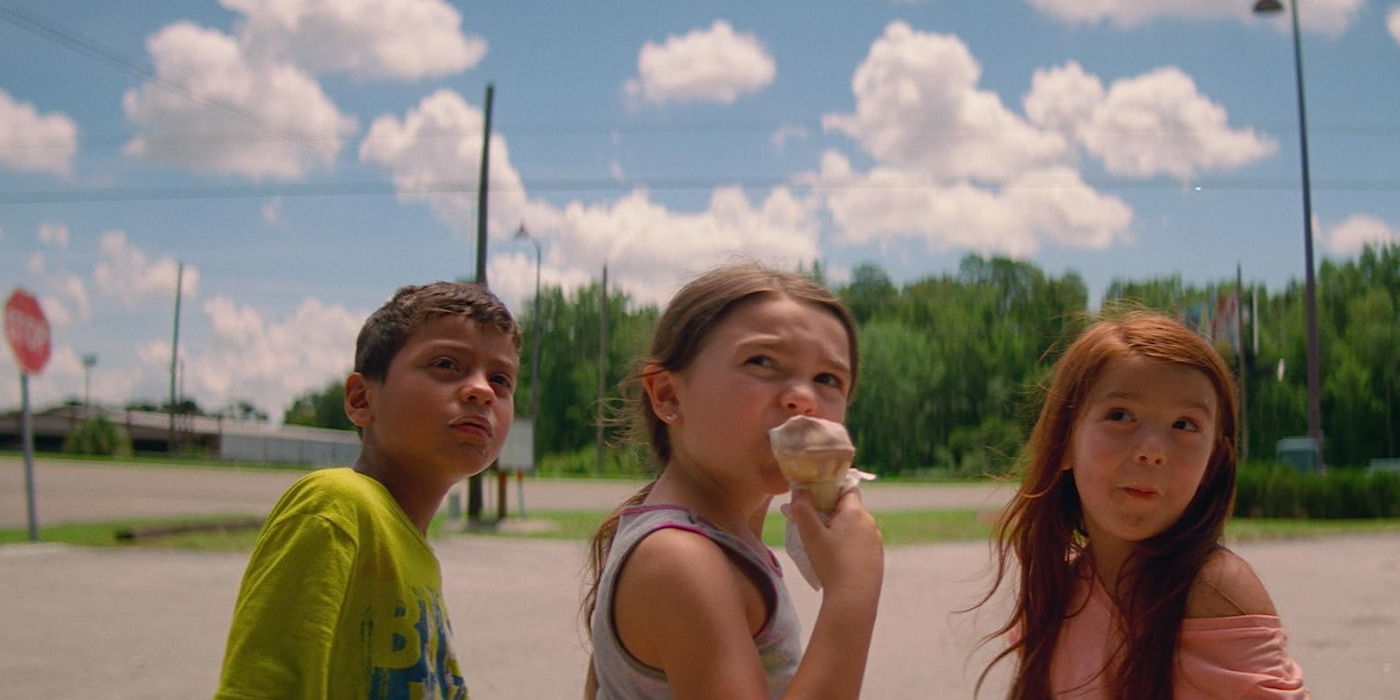Directed by Sean Baker, the 2017 indie drama film ‘The Florida Project’ is a story about childhood innocence that serves as a commentary on society’s stark socio-economical divide. The film is set in a budget motel, Magic Castle, near the renowned Walt Disney World in Florida and centers around a six-year-old kid, Moonee, and her young single mother, Halley. Over summer break, the little girl embarks on several small everyday adventures with her friends, Scooty and Jauncey, wreaking playful havoc in her motel, managed by Bobby, a kind but stern man.
While Moonee spends her childhood carefree and untethered, Halley struggles with holding their lives together. The film is a deep dive into the lives of different individuals, with the narrative executed with authenticity and realism. It immerses you in a child’s bright and imaginative world while presenting a genuine exploration of poverty, parenting, and homelessness. Given the film’s focus on mundane life and its cast of relatable characters, viewers might be curious to know if the film is based on a true story.
The Florida Project: Fiction Inspired by Real Struggles and Lives
‘The Florida Project’ is not based on a true story. However, the screenplay was co-written by Chris Bergoch and director Sean Baker, who did thorough research for this film. Initially, the idea came from news reports about homeless people in Florida, which inspired the pair of writers to tell a story about a mother and daughter duo. With the help of a grant from Cinereach, they undertook a trip to Orlando, which helped them get a clearer idea about the details of the film they wanted to make.

As such, the people Bergoch and Baker met during their research trip to Orlando greatly inspired the characters that form the film’s foundation. Discussing the same in an interview with Slant Magazine, Baker said, “Meeting motel managers really changed our approach to the film. We met one man in particular who opened up his world to us, and all the motel managers are almost like reluctant father figures. That very much inspired the Bobby character.”
Similarly, several interactions with single moms who were in kindred situations to Halley’s also significantly informed Halley’s character. “I’m not going to say she [Halley] represents all single moms in that situation; she definitely doesn’t. There’s an extreme there that we’re showing. But at the same time, I did meet the real Halleys, and they do exist. And they were very isolated.”
According to data from Statistics for DCF Central Region, October 2021 to September 2022 saw 2,782 central region children removed to foster care. At a rate of 27.4 individuals per 10,000, on average, around 231.8 children were moved to Foster Care every month. As such, the relatability of the film’s characters and the raw authenticity found in their experiences are born from their connection to real-life people and issues. The realistic element behind Halley and Bobby’s characters, in particular, helps the film explore its prominent theme of parenthood.
Though neither Bobby nor Halley embodies the perfect parental figure in the kids’ lives, their flaws and fallbacks only improve their sense of realism. As such, the audience can connect with these characters more personally. Willem Dafoe’s Oscar-nominated performance as Bobby and Bria Vinaite’s similarly commendable interpretation of Halley further solidifies this tie between the audience and the characters on screen. Likewise, Brooklynn Prince’s compelling personification of Moonee, the central character, drives the film’s emotional heart.
Moonee’s exemplary childlike ignorance about her doomed predicament colors the film’s narrative with a moving innocence. Due to the same, the film delves into the concept of childhood with a refreshing approach. Since childhood, as a theme forms such a significant cog in the overall machine that is the film, this aspect was carefully studied and crafted by the writers. “In pre-production, we tried to watch as many children-oriented films as possible,” said Baker in a conversation with Roger Ebert. “We had already seen most of them, but we wanted to revisit, just to see how the masters tackled the subject but also what to avoid.”
The director/writer further cited movies like ‘Kes,’ ‘Small Change,’ and ‘The Little Rascals‘ as media he consumed for research. Foreign films like ‘Streetwise’ and ‘Miracle on 1st Street’ also helped him understand the niche genre. In the end, we can gather that although ‘The Florida Project’ is not a direct recreation of real-life events that happened to real people, there is certainly a layer of truth to the narrative. This film, created with sincere intention and careful research, reflects a part of reality often left undiscussed in mainstream media.
Read More: TIFF Review: The Florida Project Is Heartbreakingly Good


You must be logged in to post a comment.